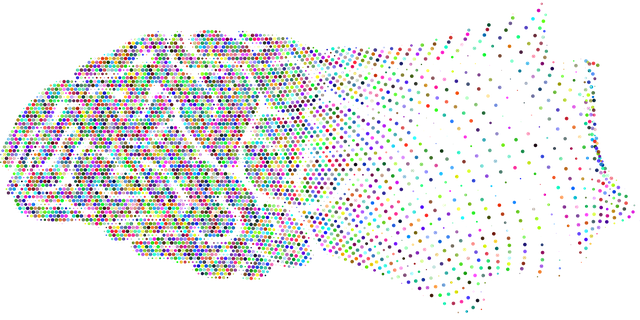Effective therapy for young sexual abuse survivors requires specialized approaches, data-driven analysis, and nuanced interpretation. By integrating Mind Over Matter principles, stress reduction methods, and Empathy Building Strategies, therapists can create safe environments fostering resilience and holistic healing. Mental Health Policy Analysis helps identify patterns, enabling targeted interventions. Advanced data analysis uncovers behavioral insights, guiding tailored therapeutic strategies. Identifying treatment effectiveness through pre- and post-assessments is crucial for improving well-being. Ethical considerations protect privacy while promoting open discussions and disseminating insights responsibly.
Mental health data analysis is a powerful tool for understanding and improving outcomes for young survivors of sexual abuse. This article delves into the critical process of collecting, analyzing, and interpreting data related to therapy and recovery. From recognizing behavioral patterns to assessing treatment effectiveness, each step plays a vital role in supporting vulnerable children. We explore ethical considerations and privacy concerns, ensuring responsible handling of sensitive information. By understanding these aspects, mental health professionals can navigate the complex landscape, fostering effective care for young sexual abuse survivors.
- Understanding Mental Health Data Collection for Young Survivors
- The Role of Analysis in Therapy and Recovery
- Interpreting Behavioral Patterns and Traumatic Responses
- Identifying Treatment Effectiveness and Gaps
- Ethical Considerations and Privacy in Data Analysis
Understanding Mental Health Data Collection for Young Survivors

Understanding the intricacies of mental health data collection among young survivors of sexual abuse is paramount in providing effective therapy. This demographic faces unique challenges, requiring specialized approaches and tailored interventions. The process involves meticulous documentation and a nuanced interpretation of behaviors and responses, especially considering the sensitive nature of their experiences.
Mental health professionals play a pivotal role in implementing robust risk management planning to ensure safe and supportive environments for these survivors. By adopting Mind Over Matter principles, therapists can guide young children towards fostering resilience and coping mechanisms. Furthermore, integrating stress reduction methods within therapy sessions can significantly enhance their ability to navigate the complexities of their past traumas, ultimately promoting holistic healing and improved mental well-being.
The Role of Analysis in Therapy and Recovery

In the context of therapy for young children who are sexual abuse survivors, data analysis plays a pivotal role in tailoring effective treatment plans. Through meticulous Mental Health Policy Analysis and Advocacy, therapists can identify patterns and trends within individual cases, enabling them to provide targeted interventions that address specific trauma responses. This process involves not only interpreting clinical notes and assessment results but also leveraging advanced statistical techniques to uncover subtler indicators of distress or resilience. By integrating Empathy Building Strategies, therapists foster a safe space where children feel understood, which is essential for fostering trust and encouraging participation in the healing process.
Additionally, crisis intervention guidance derived from data analysis can help predict potential triggers and implement proactive measures. This proactive approach not only enhances the effectiveness of therapy but also promotes better outcomes in the long term. The insights gained from such analyses allow therapists to adapt their strategies, ensuring that each child receives personalized care that supports their unique recovery journey.
Interpreting Behavioral Patterns and Traumatic Responses

Interpreting behavioral patterns and traumatic responses is a nuanced aspect of mental health data analysis, especially when focusing on young children who have experienced sexual abuse. Therapists can uncover significant insights by closely examining the behaviors exhibited by survivors. For instance, a child might display excessive aggression or withdrawal as coping mechanisms, indicating underlying distress. By identifying these patterns, therapists can tailor therapeutic interventions to address specific needs.
Understanding traumatic responses is crucial in helping survivors process and heal. This involves recognizing and interpreting symptoms such as nightmares, flashbacks, or emotional detachment. Through advanced data analysis, professionals can identify commonalities across survivor narratives, leading to more effective support strategies. Moreover, promoting self-care routines and fostering public awareness campaigns around depression prevention can significantly contribute to the well-being of sexual abuse survivors, ensuring they receive the compassionate care they deserve.
Identifying Treatment Effectiveness and Gaps

Identifying treatment effectiveness is a crucial step in mental health data analysis, especially when focusing on vulnerable populations like young children who have experienced sexual abuse. By carefully examining treatment outcomes, researchers and healthcare providers can gain valuable insights into what strategies are most beneficial for these survivors. This process involves comparing pre- and post-treatment assessments to measure progress and identify areas where additional support may be needed. For instance, therapy sessions aimed at trauma recovery should lead to reduced symptoms of anxiety and depression, as well as an increase in coping skills and overall well-being.
Moreover, data analysis can help uncover gaps in current treatment approaches. In the context of young children, this might reveal a need for more specialized interventions tailored to their developmental stage or cultural background. For example, some survivors may benefit from play therapy or art therapy in conjunction with traditional talk therapy, especially if they struggle with expressing their experiences verbally. Additionally, analyzing data on burnout prevention strategies for healthcare providers involved in such cases is essential to ensure they remain effective advocates and supports for these survivors over time, thereby enhancing the overall quality of care provided.
Ethical Considerations and Privacy in Data Analysis

The ethical landscape of mental health data analysis is complex, especially when it involves therapy for young children who are sexual abuse survivors. Protecting the privacy and confidentiality of sensitive information is paramount. Researchers and analysts must adhere to strict guidelines to ensure that no identifying details are disclosed, maintaining the anonymity of participants. This is crucial for fostering trust and encouraging open discussions about challenging topics.
In the context of therapy for young children, understanding the nuances of their experiences demands a delicate approach. The process of data interpretation should promote inner strength development by focusing on resilience rather than just symptoms. Mental wellness podcast series production can play a role in disseminating insights gained from such analyses, contributing to broader conversations around mental health while respecting individual privacy and confidentiality.
Mental health data analysis is a powerful tool in understanding and improving outcomes for young survivors of sexual abuse. By interpreting behavioral patterns, we can identify traumatic responses and tailor therapeutic interventions for optimal recovery. As we navigate the ethical landscape of data privacy, ensuring confidentiality and informed consent becomes paramount. This comprehensive approach enables us to provide effective treatment, address gaps in care, and ultimately foster resilient futures for these vulnerable individuals. Specifically, focusing on therapy for young children sexual abuse survivors can revolutionize support systems, leading to a brighter, more hopeful outlook.










